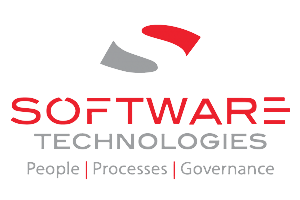
In the ever-evolving digital age, technology has become an indispensable tool for progress across various sectors. Parliaments, as the cornerstone of democratic governance, have not been immune to this digital transformation. Technological advancements have played a vital role in modernizing parliamentary processes, enhancing efficiency, promoting transparency, and strengthening citizen engagement. Below are significant ways in which technology has revolutionized and modernized parliaments worldwide.
- Streamlined Communication and Information Management: Technology has revolutionized the way parliaments handle communication and manage information. Traditional paper-based systems have been replaced by digital platforms, enabling streamlined processes for sharing documents, scheduling sessions, and conducting legislative research. Members of Parliament (MPs) can access vital information and relevant data at their fingertips, facilitating informed decision-making and efficient governance.
- Digital Voting and Legislative Procedures: Digital voting systems have replaced traditional manual voting processes in many parliaments. Electronic voting allows for faster and more accurate vote counting, reducing the scope for human error. It enables remote participation, allowing MPs to cast their votes from outside the parliamentary chambers, thereby improving accessibility and accommodating busy schedules.
- Enhanced Transparency and Accountability: Technology has greatly contributed to promoting transparency and accountability within parliaments. Online platforms and websites provide access to parliamentary proceedings, debates, and voting records, ensuring that citizens can stay informed about legislative activities. Live streaming of sessions allows citizens to witness decision-making processes in real-time, fostering trust and promoting citizen engagement.
- Virtual Committees and Remote Participation: The COVID-19 pandemic further highlighted the significance of technology in modernizing parliaments. Virtual committee meetings and remote participation became essential tools for maintaining parliamentary functions during lockdowns and travel restrictions. Video conferencing platforms and collaboration tools allowed MPs to contribute to committee discussions and debates from anywhere, ensuring continuity and minimizing disruptions.
- Citizen Engagement and Public Consultations: Technology has transformed the way parliaments engage with citizens and gather public input. Online portals, social media platforms, and interactive websites facilitate public consultations, enabling citizens to express their opinions on legislation and policy matters. MPs can gauge public sentiment, conduct surveys, and receive feedback in real-time, fostering a more inclusive and participatory democratic process.
The role of technology in modernizing parliaments cannot be understated. From streamlining communication and information management to enabling digital voting and enhancing transparency, technology has revolutionized parliamentary processes. It has empowered citizens to engage actively in democratic governance, improved efficiency, and fostered greater accountability. As we move forward, the continued integration of technology will undoubtedly shape the future of parliaments, creating more inclusive and participatory democratic systems worldwide.
